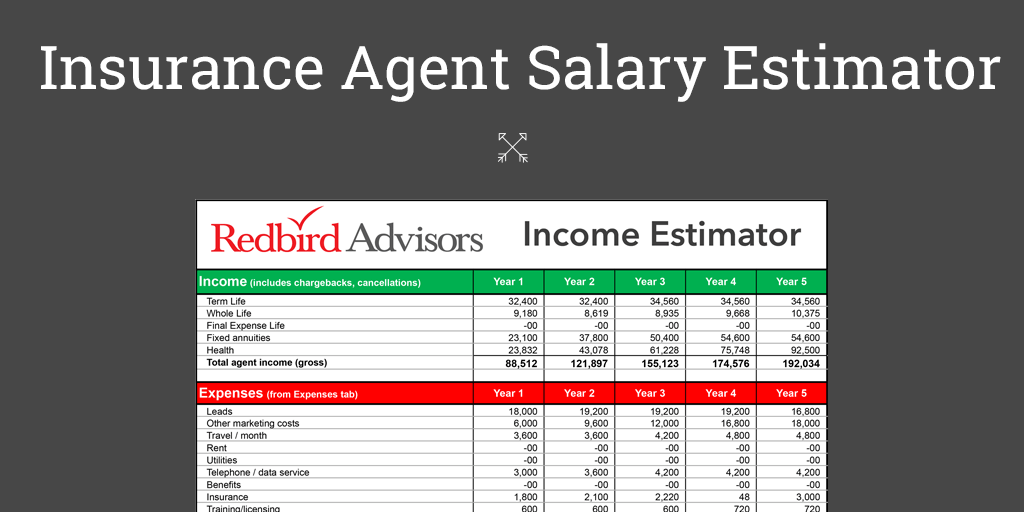We asked Mike Granbois to participate in yesterday’s regular Thursday training session to get his views on the market for fixed indexed annuities and how agents can capitalize on selling annuities. Mike is a veteran in the insurance and securities industries and is our main go-to guy outside of Redbird for support with fixed indexed annuities. Below is a recap of our discussion and we will make the recording available.
Reading time: 11 minutes (a little longer this week but well worth the read)
Get Your Updated Copy of Annuity Rates
Why are agents reluctant on selling annuities?
Mike Granbois: A lot of licensed agents get stuck in their comfort zone.
And, there is a stigma with selling annuities.
There has been some bad press over the years, but most issues with annuities have been resolved. There is an unbelievable opportunity right now with the number of seniors looking for safe money solutions.
What is the difference between fixed and variable annuities?
Mike Granbois: A variable annuity is a product where there’s a risk of losing the principal or investment because the base product performance is predicated on individual mutual funds or sub accounts that can go up and down.
A variable annuity is going to be a more expensive product for the client because of the fees charged by the insurance company. They charge those fees because a lot of variable products now have guarantees. To provide those guarantees they have to buy insurance to provide for the guarantee and the cost of that insurance is passed on to the client.
It’s a very expensive proposition for the insurance companies to provide those guarantees.
An indexed annuity has to provide a guarantee that at the end of term the client will get all their money back plus a minimal amount of growth. We’re talking about a safe investment that guarantees the client will never lose money as long as they follow the rules of the contract.
On a scale of 1 to 10 where “1” is extremely low risk and “10” is extremely high risk, where do fixed indexed annuities fit?
Mike Granbois: 1.5. The only reason for even a small amount of risk is there may be some fees.
The whole premise around the development of these products is to provide a guarantee of principal where all the money clients put in they will never lose. The worst you can do is a zero return because of market performance. It’s a very conservative product.
When marketing annuities, who is the target client?
Mike Granbois: It’s for everyone. It’s for younger people concerned about volatility in the market or a client that is generally conservative.
Most of these are developed for seniors who don’t want to take on more risk or just want a safe place for money. There are opportunities across many markets for selling annuities.
Why do carriers put caps or participation limits on these products?
Mike Granbois: I like to think of this in terms of a barbell with high risk on one end and low risk on the other.
On one end are the risk assets with unlimited upside and unlimited downside such as stocks, some bonds, variable annuities and options.
On other end of the barbell are low risk or riskless products such as CDs, money markets, checking accounts, some bonds and fixed annuities. Right in middle is where I place the indexed annuity. It’s going to give you features of both sides of that barbell: upside potential and the guarantees.
When is a fixed annuity product considered a replacement?
Mike Granbois: Look at the source of funds that is going to fund the new annuity. If the originating place is another annuity or a life insurance policy, then it’s a replacement.
Anything else is not a replacement; even a death benefit of an insurance policy is not a replacement. Also, rules for states vary so pay attention closely.
How should we be counseling soon-to-be-retirees or those just recently retired about money in their pension plans?
Mike Granbois: I handle that in two ways.
First, I find out how much money is going to be guaranteed from their pension plan and then compare that to how much we can guarantee with an annuity from the open market. Sometimes pension plans can guarantee more but most of the time we can beat it.
Second, I look at the safety of the pension plans. Pensions have to remain funded—there has to be enough money in there—to guarantee they are going to be able to make payments to the employees. Almost half of all pension plans today are underfunded, so there’s the real risk a pension plan might not be able to meet its obligations to the client.
You have to look on a case by case basis on the strength of those pensions.
Why do different annuity companies have different payout percentages?
Mike Granbois: Insurance companies are in the business of managing risk, not taking risk.
All insurance companies make money in the same fashion. They take premiums from customers and invest them in their general assets. Those general assets kick off interest that can be invested in any type of investment vehicle. Most are invested in investment grade bonds.
But, a lot of smaller insurance carriers take more liberties where they will invest in vehicles such as mortgage backed securities or real estate.
So, when talking about the interest rates they can provide it’s just a matter of how aggressive they are and what investments are in the background. My job is to evaluate insurance companies and the long term viability of their products. Fixed indexed annuities are typically long term products so you want to make sure the guarantee you’re selling them is going to perform in the manner you sold to them.
What do you see as the opportunity for fixed indexed annuity sales over next 20 years?
Mike Granbois: I recently met with one of the biggest players in the U.S. and they are projecting year over year growth of 15-20% over next 25 years.
They are projecting exponential growth in the income market and safety driven market.
The reason is simply the number of Baby Boomers, the 60 and over crowd. And, the number of people moving into the senior market right behind the Boomers will just add more to the growth.
How are you helping agents making the leap into selling annuities?
Mike Granbois: The leap into annuities is simply making the commitment for the opportunity. It’s just asking the right questions. For example:
- Do you have an old 401k or other money that isn’t working for you in a way that makes you happy?
- Are you scared about a potential market correction?
- Would you be open to a discussion about a product that guarantees you’ll never lose money or income for the rest of your life even if you run out of money?
How have insurance companies overcome a somewhat checkered past for annuities?
Mike Granbois: The product development from insurance companies is unbelievable for annuities today. You can find a product to fit just about any client need. However, over the years a lot of unscrupulous agents have taken advantage of the products and clients, and insurance companies have paid the price for that. The big lawsuits really came out six years ago or so and from that the insurance carriers have instituted very, very stringent suitability practices. Now the agent has to fill out a suitability worksheet or placement form. Internally, the companies have instituted internal oversight processes to look out for the client and the agent.

